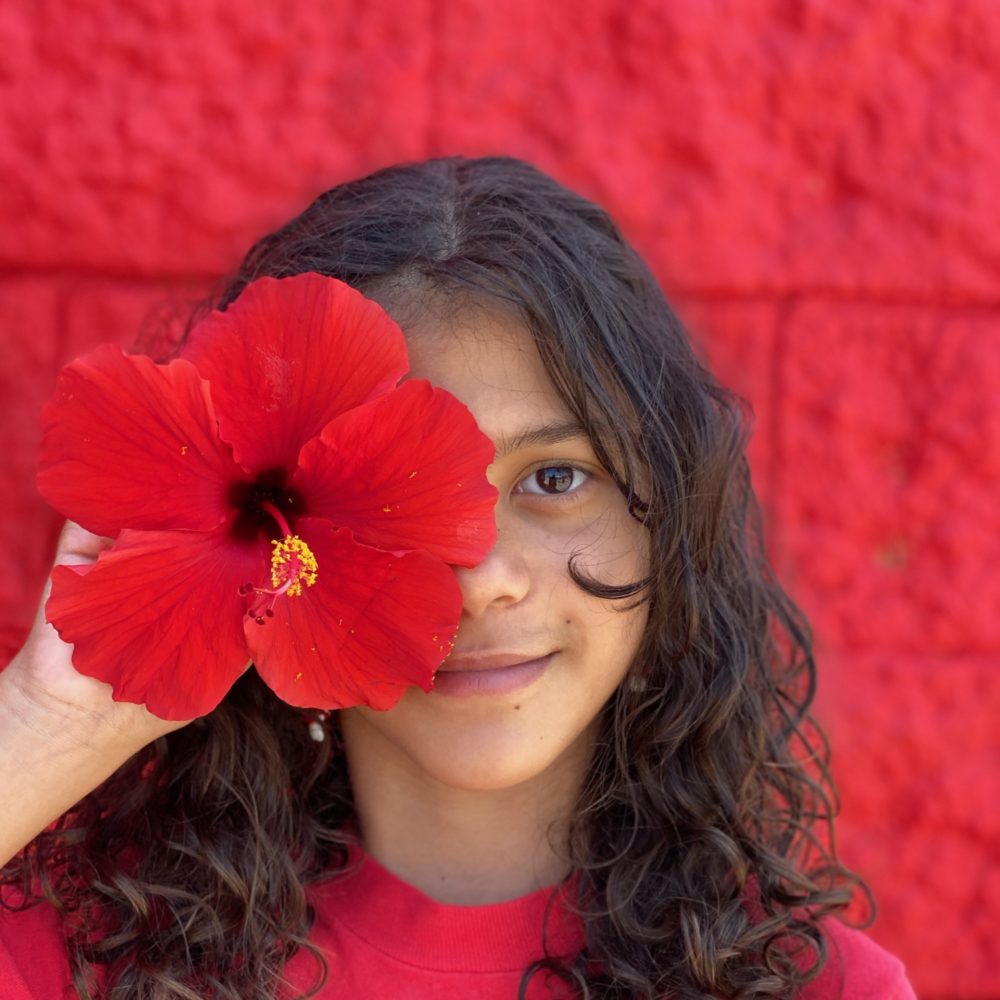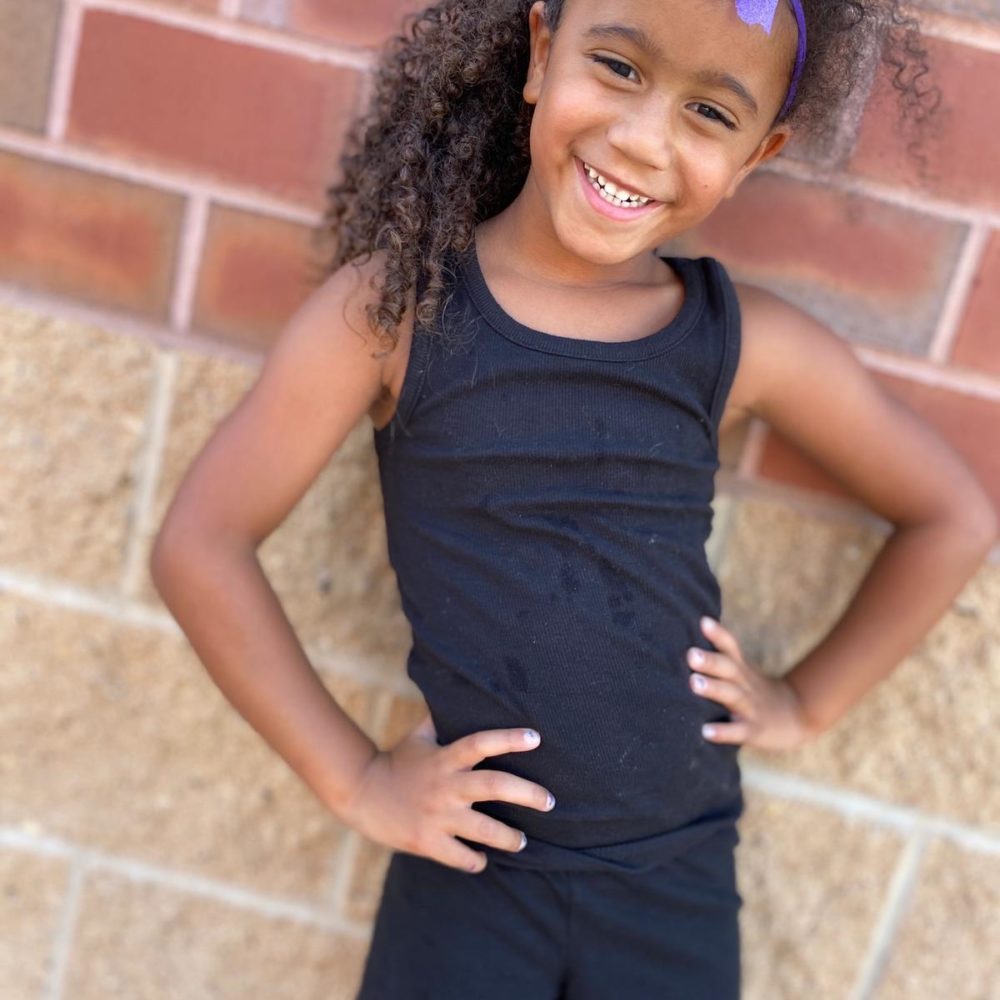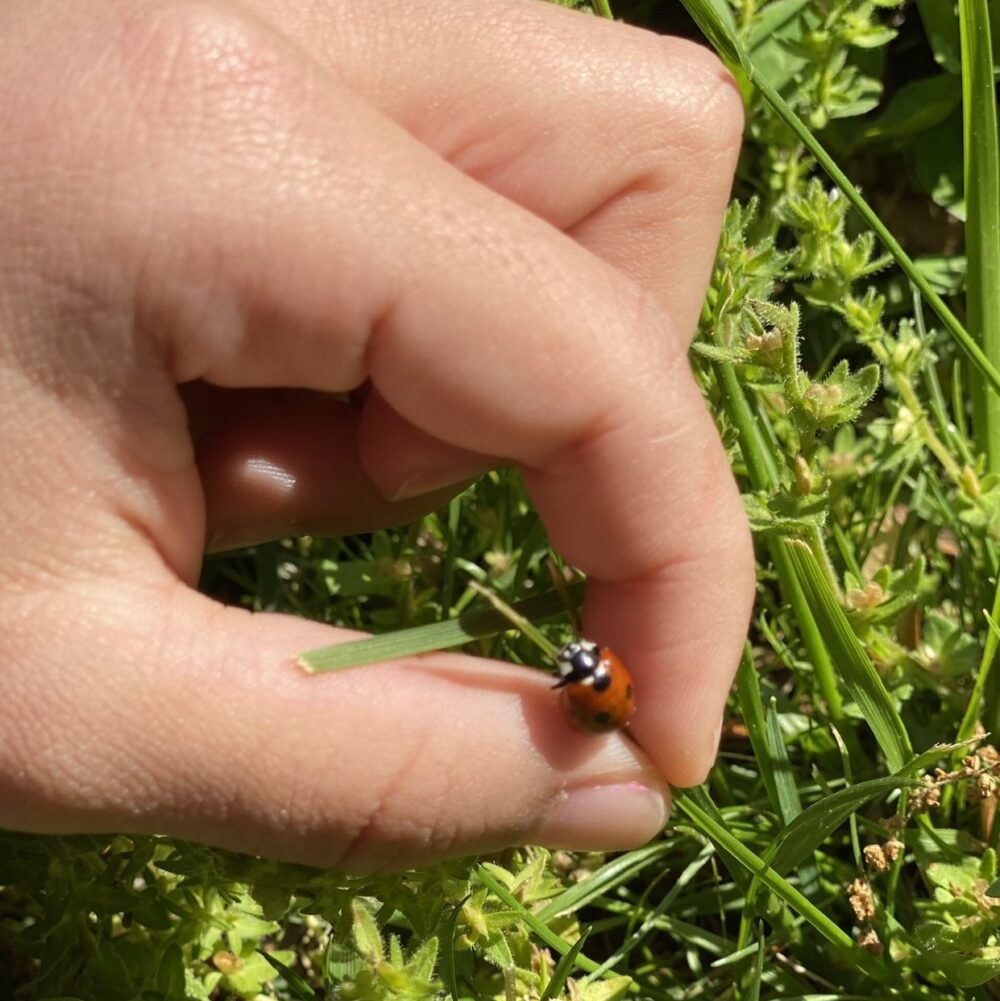GARDENS AS COLLECTIVE ACTION
I have a friend who says, “The way that you do one thing is the way that you do all things.” Agency—the importance of personal power and believing in your ability and your community’s ability to look out for yourselves and for each other—is so important when the government continues to fail certain communities. Having a community garden gives you the ability to do for yourself. It directly impacts your self-esteem and the belief in your own power and in your collective power, which affects the rest of your life. For kids, this is transformative.
It’s clear the systems that are in place are with intention, so if you want to revolutionize people’s attitudes—if you want to create change—then taking the collective power and reclaiming public space is important. The beauty of a community garden is that it recirculates— it’s not a dollar, but the seed becomes fresh food that’s shared, that’s available for anybody that needs it and is without. The community is creating its own resources, its own mutual aid network, and this process reaffirms that the entire ecosystem is connected—we’re all interconnected—even as it’s a form of collective action.
Long before COVID, there’s been a public health crisis in low-income communities. Any health site will tell you that African Americans lead in diabetes, all forms of cancer, asthma, obesity. You can drive through a low-income neighborhood and see McDonald’s, Taco Bell, liquor stores. My research is part seeing numbers—the public health crisis data—but it’s also my proximity to these neighborhoods that are just overlooked and dismissed. When you understand the symbiotic relationship between food and wellbeing, you realize the connection between disease and the inequalities in the food system. And you realize this is all part of a system of injustice.

GARDENS AS EDUCATION
In thinking about revolutionizing education, a lot of kids live in food deserts and don’t have breakfast in the morning and don’t have dinner the night before—they look tired, they have low energy levels, and it shows in the classroom. So revolutionizing education isn’t just about teaching, it’s about building an ecosystem.
That’s what inspired us to build gardens for students. A community garden not only lets kids grow vegetables, but also lets kids eat fresh food in the cafeteria and take bags home that they can share with their families. Their brains are so much more prepared with that access to nutrients. And if you start eating vegetables and fruits when you’re a kid, you’ll develop a palate for it and build on that when you’re older, impacting the numbers from a health outcomes standpoint.
People don’t understand just how big of a role having a garden at your school can play. In certain schools and in certain situations, the kids don’t feel like they’re actually seen. So the garden tells them that they’re special. It’s an expression that’s missing: I see you, you matter. Some kids never get that, so it’s not just a garden, it’s a form of love.
Our first garden was at Pharrell’s old elementary school, Sea Tack. I was able to watch these kids and the impact of knowing that they grew something, to see how the research became more than just data. The students went from not eating fresh vegetables to being excited about kale and carrots and asparagus. The garden became a place of meditation, a calm place, a way for students to handle difficult emotions. They were able to take the confidence they got by tending the garden and to carry it into their classroom. Their leadership skills blossomed. When we expanded the program to other schools, the kids at Sea Tack wanted to be ambassadors. They were so motivated and had such pride in their garden’s growth—it was unbelievable to see that impact.

MORE THAN GARDENS
It’s so much bigger than a garden and a place to grow food. It’s planting seeds in the kids, it’s watering their possibility, it’s tending to the community. Even the harvest is symbolic for how a community can take care of each other. So the garden becomes this kind of ecosystem. You’re watering the kids when you water the kale, you’re harvesting confidence when you harvest the carrots. You can see the kids blossoming. That’s why I love the garden: it starts out as dirt, what seems to be just dirt, and you get to see this metamorphosis of a seed that then becomes a thing that not only cultivates agency within the individual and the community, but it also strengthens, it nourishes. You get to see the power of the seed, and the possibilities of the child.



